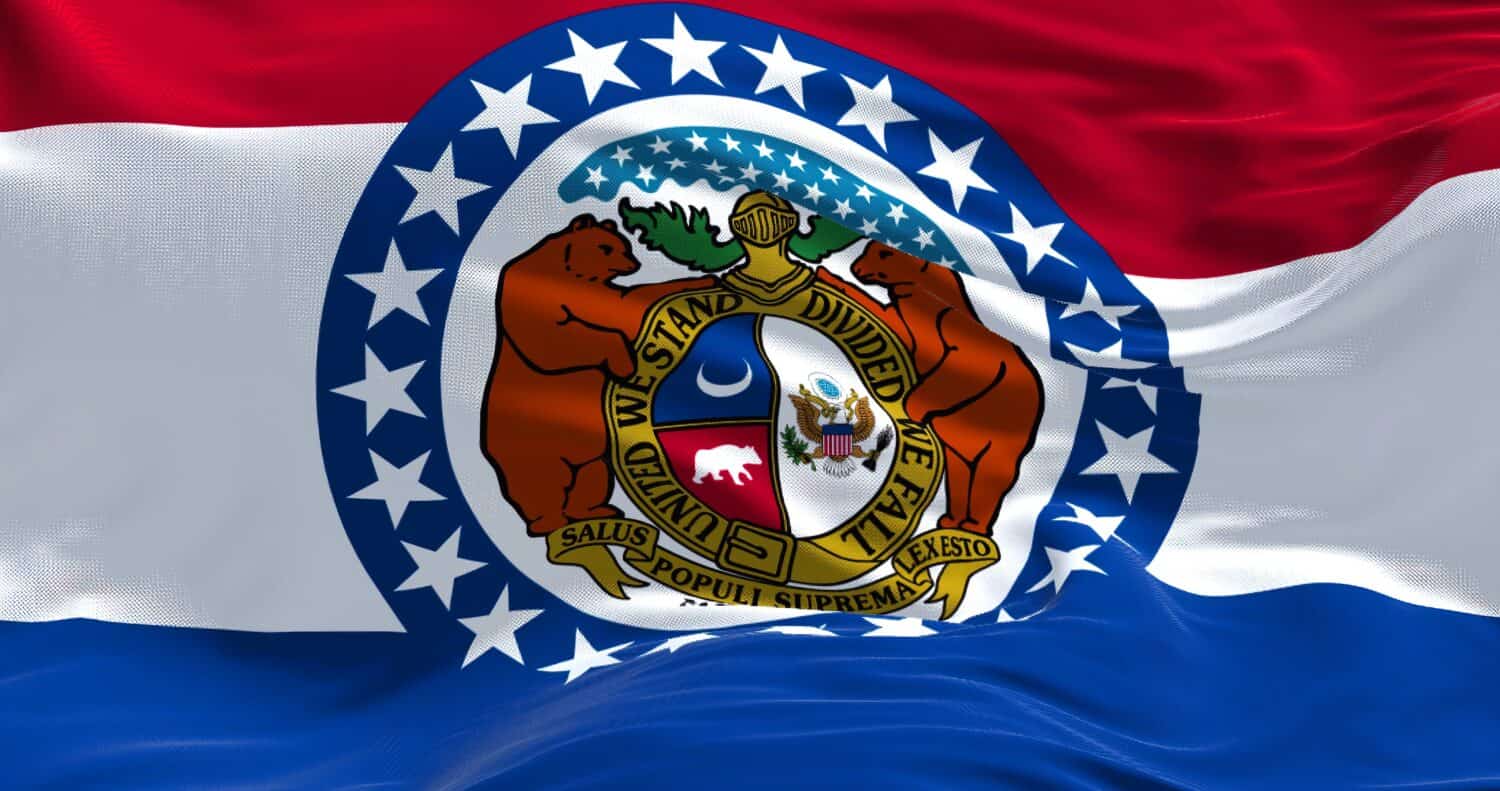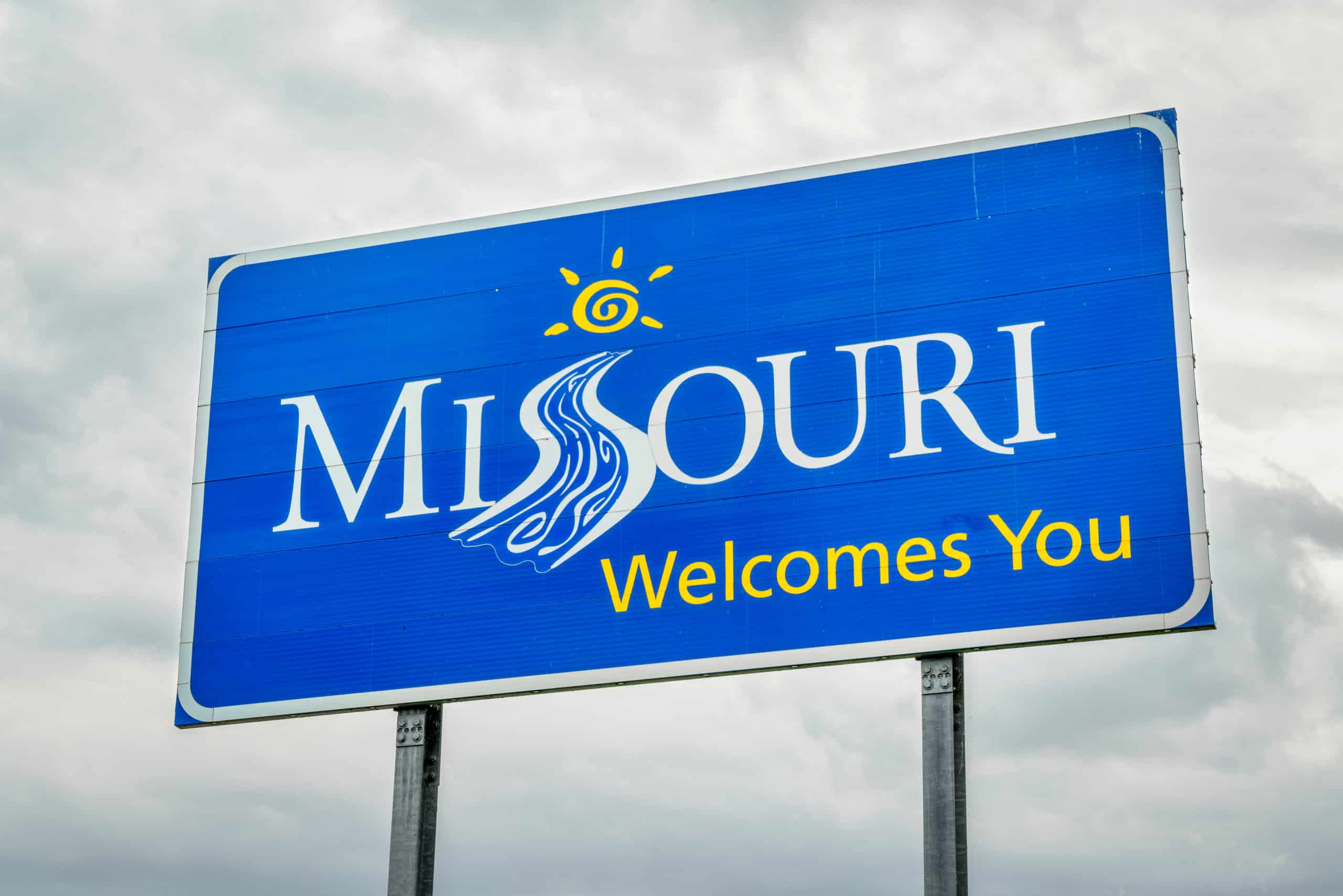Missouri is an important state known for its agriculture and livestock. On the urban side, it is home to the lively cities of Kansas City and St. Louis. Missouri has a lengthy history and shares its name with the longest river in the United States. However, the history and etymology of this name are little known and sometimes misinterpreted.
The state of Missouri and the Missouri River take their name from a Native American tribe. Sadly almost all the indigenous tribes were forced out of the state many years ago.

The Missouri River and the state of Missouri take their name from a Native American tribe.
©iStock.com/Matthew Howieson
Origin and Meaning of Missouri’s Name
The history of the state of Missouri dates back thousands of years when indigenous people settled the land. Before the Indian Removal Act of 1830, a number of tribes lived in the region. Some of these tribes included the Kickapoo, Shawnee, Ioway, Otoe, Delaware, and Osage, according to The State-Historical Society of Missouri.
Today no federally recognized Native American tribes exist in Missouri, despite the fact that the state’s name comes from an Indigenous tribe.
Missouri gets its name from the Missouri or Missouria tribe. Their name translates to “one who has dugout canoes.” In the tribe’s own language, they call themselves Niúachi, which means “People of the River Mouth.” The same tribe inspired the name of the Missouri River.
The name Missouri is sometimes incorrectly translated to mean “muddy water,” but this is not accurate. According to Legends of America, the misconception comes from Father Jacques Marquette, who referred to the river as “Pekitanoui” which means “muddy.”
Missouri Nicknames and Slogans
The state of Missouri has several nicknames including “The Lead State”, “The Ozark State”, “The Cave State,” and “The Mother of the West.”
Additionally, the state’s unofficial slogan seen on license plates is “The Show Me State.” It’s not clear exactly where the nickname comes from, as it has several origin stories. According to Missouri Secretary of State (.gov), the most widely accepted story attributes the phrase to a Missouri U.S. Congressman named Willard Duncan Vandiver.
In a speech at a naval banquet in Philadelphia, Vandiver is quoted as saying: “I come from a state that raises corn and cotton and cockleburs and Democrats.” He added that “frothy eloquence” will not do to convince him. “I am from Missouri. You have got to show me,” Vandiver concluded.

Missouri has several nicknames, with the most prominent being the “Show Me State.”
©rarrarorro/Shutterstock.com
Prior Names for the Location
Missouri’s name has not changed since its statehood, but prior to this, it had a different name. For a time, what would be present-day Missouri was a part of the Louisiana Territory. The United States acquired this expanse of land in the Louisiana Purchase.
The Louisiana Territory included all of modern-day Arkansas, Iowa, Kansas, Missouri, Nebraska, and Oklahoma, and parts of several other states, according to Missouri Secretary of State (.gov). On June 4, 1812, the territory of Louisiana was renamed the Territory of Missouri. The name remained and Missouri eventually gained statehood in 1821.
Thank you for reading! Have some feedback for us? Contact the AZ Animals editorial team.








